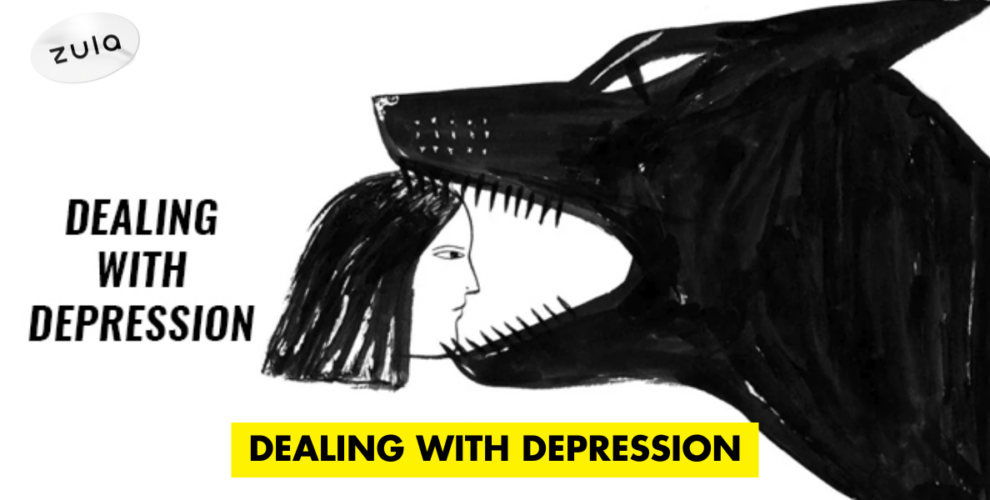Coping With Depression
Two years ago, my sister phoned me crying at 2.00am. Between panic attacks, she asked me if she was “stupid” and a “complete failure”.
As a student on the Dean’s list, she was worried she was “under-performing” as she had chosen to drop a particularly challenging module that semester.
While I made fun of her worrying and reminded her she was doing great, I felt disheartened. I knew how crippling mental illnesses were, and I had hoped she would not have to struggle with depression as I did.
Like myself and many young Singaporeans, she didn’t seek help and chose to bear her burden in silence.
Contents
Why we kept it in
On paper, my sister and I were great kids. Raised by typical middle-class Asian parents, we never had to worry about the finances for food or school. We did well academically, participated actively in multiple CCAs, and got along well with our peers in local Universities.
But often, we’d feel anxious, irritable, tired and sad. To cope, we smoked, partied and drank too much.
Our parents disapproved, of course, but it was an unspoken rule if we did well enough in school, they’d turn a blind eye. If we kept up appearances, everything was fine.
Like many Asian children, we knew success was measured through academic achievement. We also understood it was part of the Asian culture not to express negative emotions, reveal shortcomings, or burden friends and family.
As a result, admitting depression and anxiety made us feel like failures, so we learnt to keep it in.
How depression manifested and how we hid it
“I’m tired because I didn’t get enough sleep last night” and “I’m irritated today because of PMS” were lies that came easily to our lips.
We learnt how to mask our depression well and how not to look depressed. We made sure every laugh or smile on our faces was practiced and made perfect. If anyone suspected, they didn’t say anything.
Some days, I missed class to stay in bed because I could not fight the weight of my own mind when it blanketed me with awful thoughts. On those days, even crying became difficult.
Similarly, my sister never told me when she was ‘feeling sad’—she only called when it got too much.
For a long time, I thought I could learn to live like this; I reasoned if I didn’t believe in it, it’d go away.
Also read:
How to deal with depression
But living this sort of half-life was isolating and exhausting. I got sick of leaving early when hanging out with friends because anxiety made it too difficult to be around people I loved.
I got tired of pushing everyone away and listening to the voice in my head, telling me how I shouldn’t try because everyone didn’t like me anyway.
It was only years before I finally understood that you can’t ignore your problems and expect them to go away.
With baby steps, I started opening up to friends and family, journaling and practicing self-care. I started to look within and asked myself why I felt a certain way.
I’ve even gone to see a therapist to help me work out the residual problems I couldn’t figure out.
Slowly, I unravelled my tangled feelings. Through understanding, forgiving and letting go of my unhappiness, I managed to be free of my pain.
Identifying triggers to my depressive episodes helped me minimise these attacks. I noticed how my moods would take a downward spiral during times of stress, so I became more mindful of not overworking myself.
To prevent myself from feeling overwhelmed, I’d break up huge projects into smaller, more manageable tasks.
Also, I realised maintaining my physical health was necessary for a balanced mind. That’s why exercising, eating healthy and meditating became a priority.
It Gets Better
Coming from an Asian background, I understand how many might feel embarrassed or be reluctant to get help.
But know your depression or anxiety isn’t anyone’s fault, and you’re not doing anything wrong. If there’s one thing I learnt, it’s to be more kind to yourself and to acknowledge that recovery is a process.
Some days I still stumble, and sometimes I hole up for weeks. But I keep faith knowing there’s always a light at the end of the tunnel, and these feelings will fade away.
And on the days I feel like I can’t do it anymore, I draw strength from happier days. I tell myself I am not my depression; I am more than my depression.
Most importantly, I remind myself not to give up. So, don’t give up on yourself. It does get better.
Cover image: Source
This article was first published on 5 December 2017 and last updated on 9 April 2024.
Also read:
My Journey To Becoming An LGBT Ally After Growing Up With Depression & Homophobic Relatives







